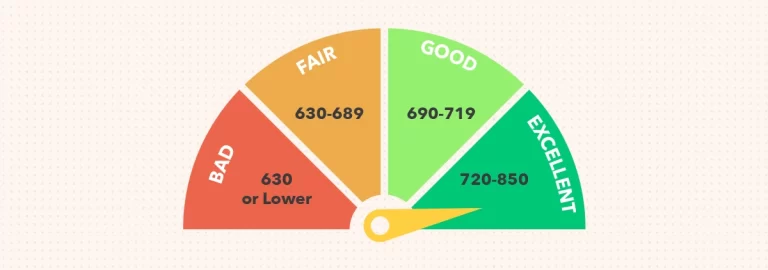What Type Attorney Do I Need? A Simple Guide for Choosing the Right Lawyer
Are you facing a legal issue but unsure about the type of attorney you need? You’re not alone. With numerous legal specializations available, finding the right lawyer for your specific situation can be overwhelming. This simple guide will help you navigate the complicated world of legal representation and answer the crucial question: “What type of attorney do I need?”
The Legal Landscape: Understanding the Scope
Before we dive into specific attorney types, let’s look at some eye-opening statistics that highlight the vast scope of legal cases in the United States:
| Type of Case | Annual Number | Percentage of Total Cases |
| Civil Cases | 20 million | 75% |
| Criminal Cases | 5.9 million | 22% |
| Juvenile Cases | 750,000 | 3% |
These numbers underscore the diverse range of legal issues Americans face each year, emphasizing the importance of finding the right attorney for your unique situation.
Types of Attorneys: Matching Your Needs to Legal Expertise
Let’s break down some common types of attorneys and when you might need their services:
1. Personal Injury Attorney
When to hire: If you’ve been injured due to someone else’s negligence (e.g., car accidents, slip and falls, medical malpractice).
What they do: These lawyers help you seek compensation for injuries, medical bills, lost wages, and pain and suffering.
2. Family Law Attorney
When to hire: For matters related to divorce, child custody, adoption, or domestic violence.
What they do: They guide you through family-related legal issues, often during emotionally challenging times.
3. Criminal Defense Attorney
When to hire: If you’re accused of a crime or under investigation.
What they do: They protect your rights, build your defense, and represent you in court.
4. Estate Planning Attorney
When to hire: When you need to create a will, set up trusts, or plan for end-of-life decisions.
What they do: Help you manage your assets and ensure your wishes are carried out after your death.
5. Employment Attorney
When to hire: If you’re dealing with workplace discrimination, wrongful termination, or contract negotiations.
What they do: Represent either employees or employers in work-related legal matters.
6. Intellectual Property Attorney
When to hire: When you need to protect your creative works, inventions, or brand.
What they do: Handle patents, trademarks, copyrights, and related disputes.
7. Real Estate Attorney
When to hire: For property transactions, landlord-tenant disputes, or zoning issues.
What they do: Review contracts, conduct property transfers, and resolve real estate conflicts.
8. Business Attorney
When to hire: When starting a business, dealing with contracts, or facing business-related legal issues. What they do: Provide legal guidance on business formation, operations, and dispute resolution.
9. Bankruptcy Attorney
When to hire: If you’re considering filing for bankruptcy or dealing with severe debt issues.
What they do: Guide you through the bankruptcy process and help you manage your debts.
10. Immigration Attorney
When to hire: When dealing with visas, green cards, citizenship, or deportation issues.
What they do: Navigate the complex U.S. immigration system on your behalf.
How to Choose the Right Attorney: A Step-by-Step Guide
Finding the right attorney is crucial for the success of your case. Follow these steps to make an informed decision:
- Identify your legal issue: Clearly define what type of legal help you need. Write down the main facts of your case and your desired outcome.
- Research potential attorneys: Use online directories, state bar associations, and legal aid websites to find lawyers specializing in your area of concern.
- Verify credentials: Ensure the attorney is licensed and in good standing with the state bar. Check for any disciplinary actions or complaints.
- Read client reviews: Look for testimonials and peer reviews on reputable sites like Avvo and Martindale-Hubbell.
- Schedule consultations: Many attorneys offer free initial consultations. Prepare a list of questions about their experience, success rate, and approach to cases like yours.
- Assess communication style: During the consultation, evaluate how well the attorney explains legal concepts and whether they’re patient with your questions.
- Discuss fees upfront: Understand their fee structure, including hourly rates, flat fees, retainers, and any additional costs you might incur.
- Consider the firm’s resources: For complex cases, a firm with ample support staff and access to expert witnesses might be beneficial.
- Trust your instincts: Ensure you feel comfortable with the attorney, as you’ll be sharing personal information and working closely together.
- Get a second opinion: If you’re unsure, consult with multiple attorneys before making your final decision.
The Importance of Choosing the Right Attorney
Selecting the appropriate type of attorney can significantly impact the outcome of your case. An experienced specialist will:
- Understand the nuances of laws in their field
- Have established relationships with relevant professionals (e.g., expert witnesses)
- Know the best strategies for your specific type of case
A Helpful Resource
If you’re still unsure about what type of attorney you need, or if you’re looking for an easier way to connect with the right legal professional, consider using a service like LegalShield. They offer access to a network of attorneys across various specializations, making it easier to find the right lawyer for your specific needs. Learn more about how LegalShield can help you here.
The Perils of DIY Legal Work: Why Professional Help Matters
While the internet has made legal information more accessible, there’s a significant difference between reading about the law and practicing it effectively. Here’s why going it alone can be risky:
- According to the American Bar Association, pro se litigants (those representing themselves) are significantly less likely to win their cases compared to those with attorneys.
- In divorce cases, a Stanford Law Study found that parties with legal representation received, on average, 30% larger settlements than those without.
- The Department of Justice reports that in immigration cases, represented individuals are five times more likely to obtain relief from removal compared to those without attorneys.
- In criminal cases, defendants with public defenders are 25% more likely to get charges dropped or reduced compared to those representing themselves.
Remember, attorneys don’t just know the law—they understand legal procedures, have established relationships within the legal community, and can anticipate challenges you might not foresee. While handling legal matters on your own might seem cost-effective, the potential consequences of a misstep can far outweigh the cost of hiring a professional.
Conclusion: Your Legal Journey Starts Here
Understanding what type of attorney you need is the first step toward resolving your legal issues effectively. Whether you’re dealing with a traffic ticket or a complex business dispute, there’s an attorney out there who specializes in exactly what you need.
Don’t hesitate to reach out to legal professionals or services that can guide you to the right attorney. Your peace of mind and the successful resolution of your legal matter are worth the effort of finding the perfect legal match.
Remember, no legal question is too small or too complex. By taking the time to find the right type of attorney for your specific needs, you’re setting yourself up for the best possible outcome in your legal journey.







